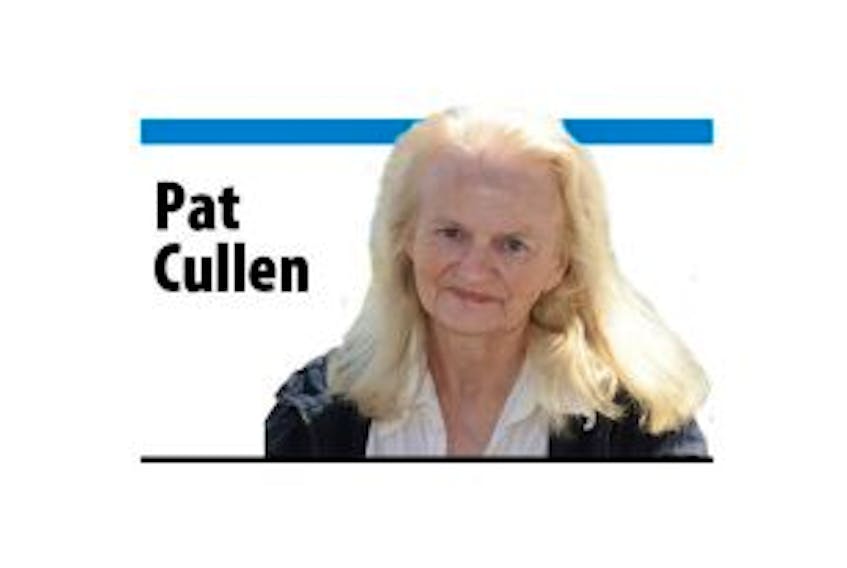They have no advocates, so they suffer in silence. They seldom make the news and they almost never complain, as if they are ashamed to lift the curtain on what must be the most miserable and pathetic of existences.
They are the single adults of this province, trying to maintain their own home on $534 a month in income support payments. They have a monthly allotment of $71 to heat that home – $71 to pay an oil bill or an electric bill in 2019.
Although I was unable to get statistics from the Department of Advanced Education, Skills and Labour (AESL) breaking down their numbers, I think it fair to say some, maybe most, are women who have been the anchor for their families but now find themselves alone and penniless.
They never did paid home-care for a family member but they were the reliable ones, always there for the others to lean on. Their filial piety has cost them dearly. If they had married and stayed married or been involved in a common-law relationship they would probably be eligible for a survivor’s allowance of around $1,362 a month from old age security once they turned 60, even if their spouse or partner had died before they were eligible to receive the old age pension, according to Service Canada agents. But I see nothing on the AESL website which entitles people to additional moneys based on age, and questions to the department asking if this particular group would be given a financial boost went unanswered.
So, they live on little more than $7,200 a year, well below the poverty line established by the federal government and the “low-income threshold” of the province. I cannot understand the mentality which makes a government ignore such figures and allow a portion of its population to wallow in discrimination and neglect.
It may pay their municipal taxes, although on the department web page this comes under the subhead of “Non-Basic Benefits” and includes the caveat that “eligibility may vary according to your personal circumstances.” But even if their taxes are paid that is more to benefit government than from any sense of compassion or fair play.
The most recent figures from Statistics Canada are for 2017 and they put the poverty line for a single adult in Conception Bay at $19,204; for Trinity Bay $19,926 and for Placentia Bay at $20,212. These yearly figures are based on the Market Basket Measure, the official poverty line introduced by the Trudeau government last summer and vary according to the cost of goods and services within regions. They are also two years old, so they are not exactly reflective of today’s cost of living.
A statement from the provincial Department of Social Development puts “the low-income threshold” for a single adult in Trinity Bay North at $17,820; for Carbonear in Conception Bay, $18,353 and for Little Harbour in Placentia Bay, $17,700. In other words, if you’re paid less than these salaries in the areas named, your income is below average. It makes you wonder how Social Development would describe the income support rates paid to a single adult by its sister department AESL.
I do not understand why a basic income, more commonly known as a guaranteed income, cannot be given to people who are not only in their twilight years but among the most unemployable in the province.
An idea I picked up after reading an interview with Evelyn Forget, author of Basic Income for Canadians: The Key to a Healthier, Happier, More Secure Life for All and a health economist at the University of Manitoba, is to increase the rates to equal those of old-age security and the guaranteed income supplement, roughly $18,000 a year.
This is far from ideal, and it is hardly generous. In fact, it falls below the poverty line established by the federal government for the regions I mentioned earlier and just grazes the low-income cut-off set by the province in those same areas. But its uniformity would end discrimination toward single people and give some dignity to those without it. A thousand dollars or two below the poverty line, but still living with dignity – quite a mouthful, isn’t it? Unfortunately, our income support rates are so low that it’s true.
Getting almost $18, 000 a year doesn’t look too bad if you’ve been living on much less than half of that. It should also lessen the criticism that those who never or seldom worked, for money that is, are now getting a taxpayer-funded free ride, even if they are in their early sixties. Most importantly, no one, including those getting survivor benefits, would be worse off.
We can afford this. All we have to do is look seriously at the plight of our disadvantaged and resolve to bring some quality to their lives – not just sling platitudes at election time.
We live in a society that preaches inclusiveness and what better group on which to focus than the voiceless who have been tossed onto the slag heap and left there. We are better than that. It is time we showed it.
Pat Cullen is a journalist who lives in Carbonear. She can be reached at 596-1505 or [email protected].









